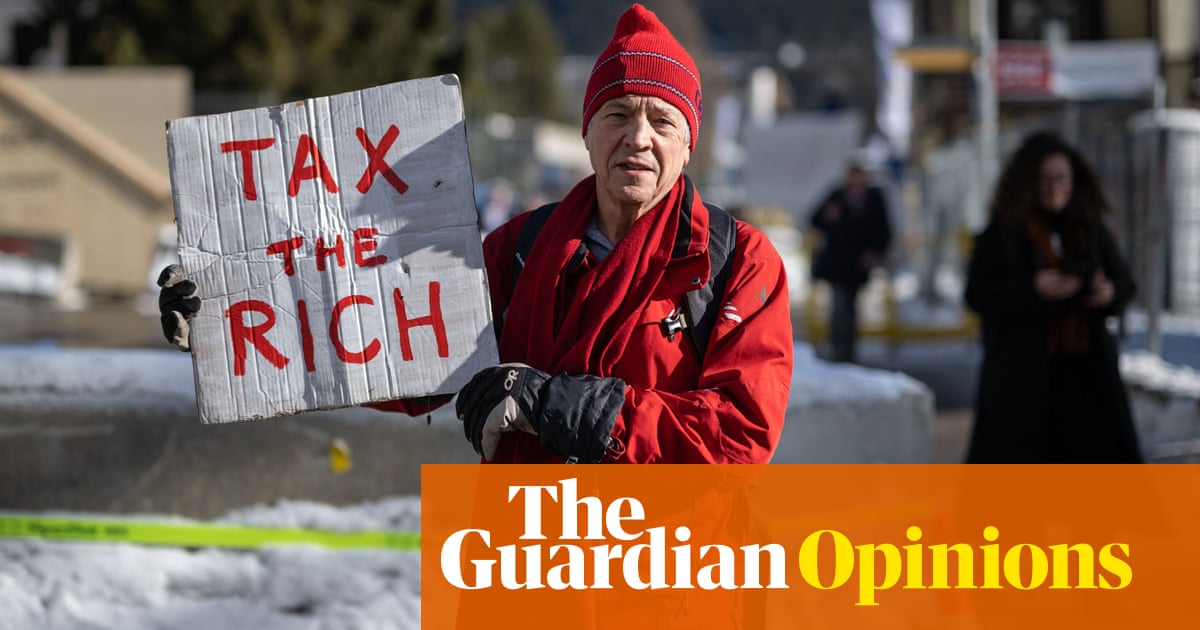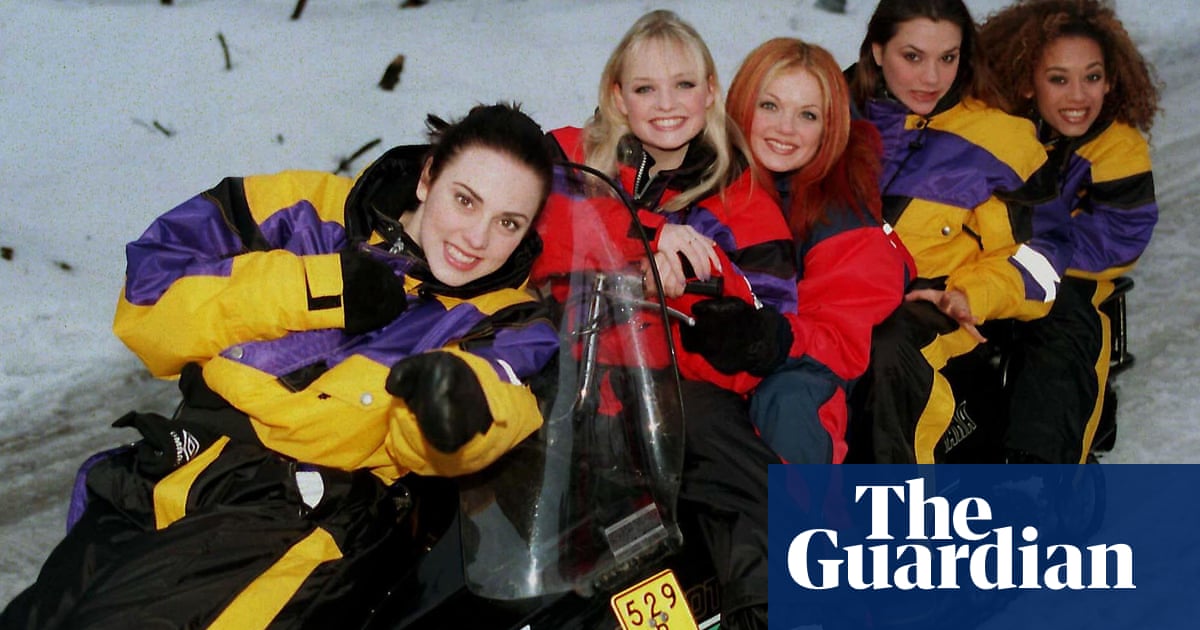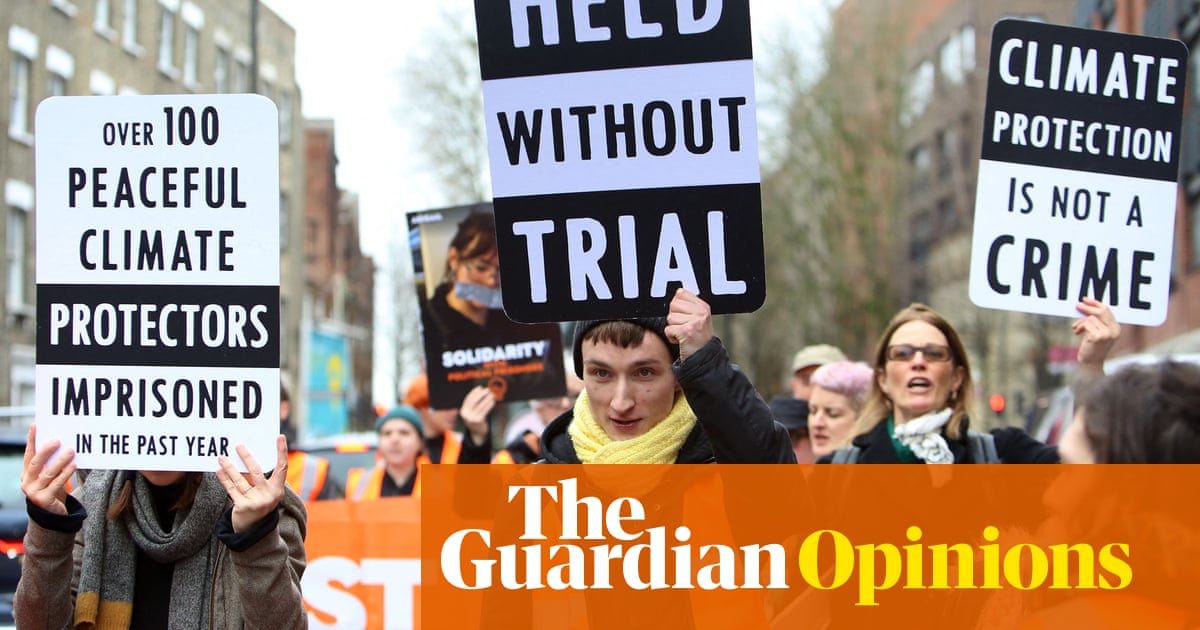
t’s 7.30pm on 29 April and I’m standing alone on the highest hill in this part of Cornwall. The sun is bright and eager, dancing with dainty flashes on the waves west towards Newquay. But I’m wrapped in everything I have – two pairs of thick socks, leggings, trousers, T-shirt, two long-sleeved T-shirts, jumper, fleece, jacket, snood, hat – and still the wind reaches its long fingers down my neck to grip my spine. It is one degree above freezing; in less than a week it will snow on Dartmoor.
In fact, this is more than a hill. This is Castle an Dinas, one of those iron age forts to which schoolchildren are taken to be underwhelmed by ditches and mounds. The dog walkers who came up earlier weren’t cowed by antiquity: each allowed their charges to mess, tongues wagging. Watching the deposits stirs in me something I was repressing. For the four days I’ve been on the road, public toilets have been there when needed. A threshold is about to be crossed. I’m going wild.
I choose a spot in one of the ditches, with good cover and few problematic prickles. As the sun is swallowed by a cloud, I kneel to dig with the screwdriver I brought for the task. I make one last check over the lip of the hill and see, to my horror, a man striding towards me. With his sturdy trainers and wraparound sunglasses there’s something of the teacher on a field trip about him, and some vestigial part of me senses a telling-off. I mime tying shoelaces and stuff my screwdriver into my pocket.
“Have you seen Roger’s Castle?” he says. I hesitate, looking around me. We check a yellowing sign. Nothing. His frustration is making the point of his chin pink and his teeth jut sideways. He shows me a Google image on his phone – very clearly a sandcastle. Someone built one here on the hill and, with a crude perspective trick, made it look like a stone and turret fortress. “Down there in the car park, it said there was an ancient monument up here. It’s very weird.”
Very, I say.
I’m still not quite in the clear. He proceeds to tell me, unbidden, that he did a half-marathon for rhinos and writes autobiographical fiction about his travels in south Asia. The pandemic has been great for sales, he says. He urges me to buy his two books and look out for a third in the works. And then he leaves.
Alone, I do what is needed, bury it and pitch my tent at a sanitary remove. The sun breaches the bottom of the cloud and pours molten gold over the sea. It trickles inland, along the runnels of rolling hills, lighting some fields yellow and green, and leaving others black and grey. The spire of St Columb is backlit in mist. The sheep bleat, the farm machines yawn and the wind turbines stand sentinel on the horizon to the north, where soon I will go. I’m standing, eating an apple, on a spot where a dark ages nobleman probably stood, staring down on the farmers and fishers below. I feel huge, mighty, fresh, grown from the ground. Then the hail comes and sends me scurrying inside the canvas like a frightened mouse.
Walking Land’s End to John o’Groats wasn’t the original plan. All I wanted was freedom. I had worked as a civil servant for three years, first in central government as the country grappled with Brexit, then, after the pandemic hit, on the Covid response. Through the tumult, my colleagues were pleasant and supportive, and the material circumstances of my life did not change. When I took a burnout questionnaire, though, I ticked every box: tiredness, torpor, tetchiness. I’m normally a silly person. But I wasn’t smiling much. I’m normally a creative person. But nothing was happening in my brain. I felt bleached.
I found respite on long, sunny Sundays, walking from my London flat on Holloway Road up to Hampstead Heath and around it, through the suburban scrub. Up there, I could feel my breath slow, my ribs release my heart. I wanted more. In time, I started researching how long it would take to walk the perimeter of the UK: 15 months or so, it turns out. When I discussed it with a friend, he reminded me of Saint Vitus’ Dance, a mania common in medieval Europe, in which the affected danced until they collapsed. The American physiologist Hans Zinsser wrote of its connection to national trauma: “To the miseries of constant war, political and social disintegration, there was added the dreadful affliction of inescapable, mysterious, and deadly disease. For those who broke down under the strain, there was no road of escape except to the inward refuge of mental derangement.”
The parallels gave me pause. Probably too long to do the whole thing. Life would change while I was in orbit. My niece and nephew would shy. My relationship with my girlfriend would die.
What about Land’s End to John o’Groats, though? Two and a half months was enough to walk 1,200 miles. That seemed about right. When people asked why, I would occasionally quote the naturalist John Muir: “Earth hath no sorrows that earth cannot heal.” But really, the line felt glib. I was wary of patronising nature with any expectation to transact. Briar and bramble didn’t owe me; I couldn’t ask something for something. But I could ask for nothing.
All I wanted was to be free, of emails and objectives and obligations which could only disappoint, of defined, quantifiable purpose. I wanted to luxuriate in pure freedom, to walk in a wild, blank void. If our culture of metrics and targets and progress were more receptive to the idea of pointlessness as a point, I might instead have quoted another naturalist, Henry David Thoreau. He wrote that creative thoughts are like birds, coming to us only if they have branches to settle. “If the grove in our minds is laid waste – sold to feed unnecessary fires of ambition – they no longer build or breed with us.” I needed to do nothing but walk and wallow in swamp and marrow for the trees to heal, for the birds to come back. The walk was more to do with that.
I started this journey on 26 April. Weeks in a windblown, freezing tent have deprived me of a lot of sleep. My feet are hard and calloused, my hips scarred with the weight of my pack. I smell awful. But I feel boyish, awake, alive.
Memories are strong, lush and vivid. The exotic coves of Cornwall – Nanjizal, Prussia and Bessy’s – with their slashing caves, and blazing cliff flowers straining towards the mirrored water to bathe in self-regard. The woody, windy bog in Nancegollan where I first wild camp: it’s infested with pompous pheasants and littered with a dictaphone, a Sebo vacuum cleaner, and a single Converse. The murderous cows near Stithians that chase me away from their calves over barbed wire and stand watching, fuming, till I take an hour-long diversion through high, wet grass. The pure chaos of Dartmoor skies, where black rain, grey mist, blue sky and a golden, baby sun share the firmament with a straight rod of rainbow and a carousel of pudding clouds: meringues, whipped cream, Vienetta.
Mostly, it’s the people. When you take it slow, people are keen to talk. Not all are like the man on Castle an Dinas. By a lake in Launceston I meet fiftysomething Steve, who learned to fish at the same spot as a teenager. As he reels in a wriggling carp, he tells me that in the past year he lost his job as a powdercoater, and five of his friends: one to an aneurysm that arrived in the pub. That’s the way he wanted to go, he says, “pint in hand”.
Others want to let off steam. As I pack away my tent at 7.30am on Bodmin Moor, Ranger Miller’s first words to me are, “You are breaking the law!” The night before was high magic, food and drink with two old friends, gossiping and consoling and rejoicing as stars speckled the freezing sky. Still, as one of two volunteer rangers, seventysomething Miller is worried about parties, Covidiots from Plymouth, the dry peat, the lambs, the longhorn cattle, the ponies and foals who had come to greet us the night previous. He asks where I’m from. I’m from Devon, I say. He does a mental calculation and decides that is just about OK. I’m not sure he’d have been as content had I said I lived in London.
I’m now seven weeks in and I can feel my body growing stronger. By 12 June I should be in Byrness, the last stop in England. At a certain point every day, my mind and body connect, and walking becomes breath, subconscious and rhythmic. I travel up and down my legs and back, and look for twinges. My thoughts are becoming ordered, patient, discrete.
I’ve only just made it to the Midlands. But soon I’ll climb up to the Pennine Way, then cut west to Glasgow and the West Highland Way, before a straight north-east line from Fort William to the last of Britain. I talk about the future only briefly – because I don’t want to tempt fate and turn an ankle, but mostly because I don’t want to think about the end. That would be too much like a purpose. This walk isn’t about finishing anything. It’s about the birds coming back.
‘I took only two pairs of pants’
Serious planning means tough decisions
The great treks of the world have definition. The Camino in Spain and the Appalachian Trail in the US are well-marked paths punctuated with designated shelters for pilgrims to rest and share wine.
Land’s End to John o’Groats is different: there is no one way. Many have trodden the length of the land, and most will have done it uniquely. That flexibility appealed to me, but without at least some forethought it would be easy to end up walking along the A30 at dusk, sopping, no hope of a bed.
First, I needed a route. I subscribed to the Ordnance Survey app and the Long Distance Walkers Association which, among many charms, offers members the ability to download GPX files for Britain’s established paths, famous and not. The difficulty was stitching them together. Blogs helped, particularly Mark Moxon’s landsendjohnogroats.info. His route became my basic skeleton, on which I performed minor surgeries.
The next concern was where to sleep. I started walking in late April, when most campsites were open only to caravans. Airbnbs were available, but expensive. That meant a lot of wild camping, which is illegal in most of England; but I offended few by pitching late, away from sight, departing early and leaving no trace. I learned to mitigate the stress of peering through gloom for a propitious spot by searching ahead on the OS app for favourable parks or woodland.
Finally, kit. Apart from the absolute essentials – bag, boots, tent, sleeping bag, rollmat – everything else was on trial during packing. I found against a stove: I would eat hot food when the chance arose and snack at other times. Other gadgets were granted reprieve: a Sawyer filter to purify water, and a Goal Zero Nomad solar panel to charge my phone. But without a marine’s shoulders, my pack could not be much more than 10kg. I took only two pairs of pants.












